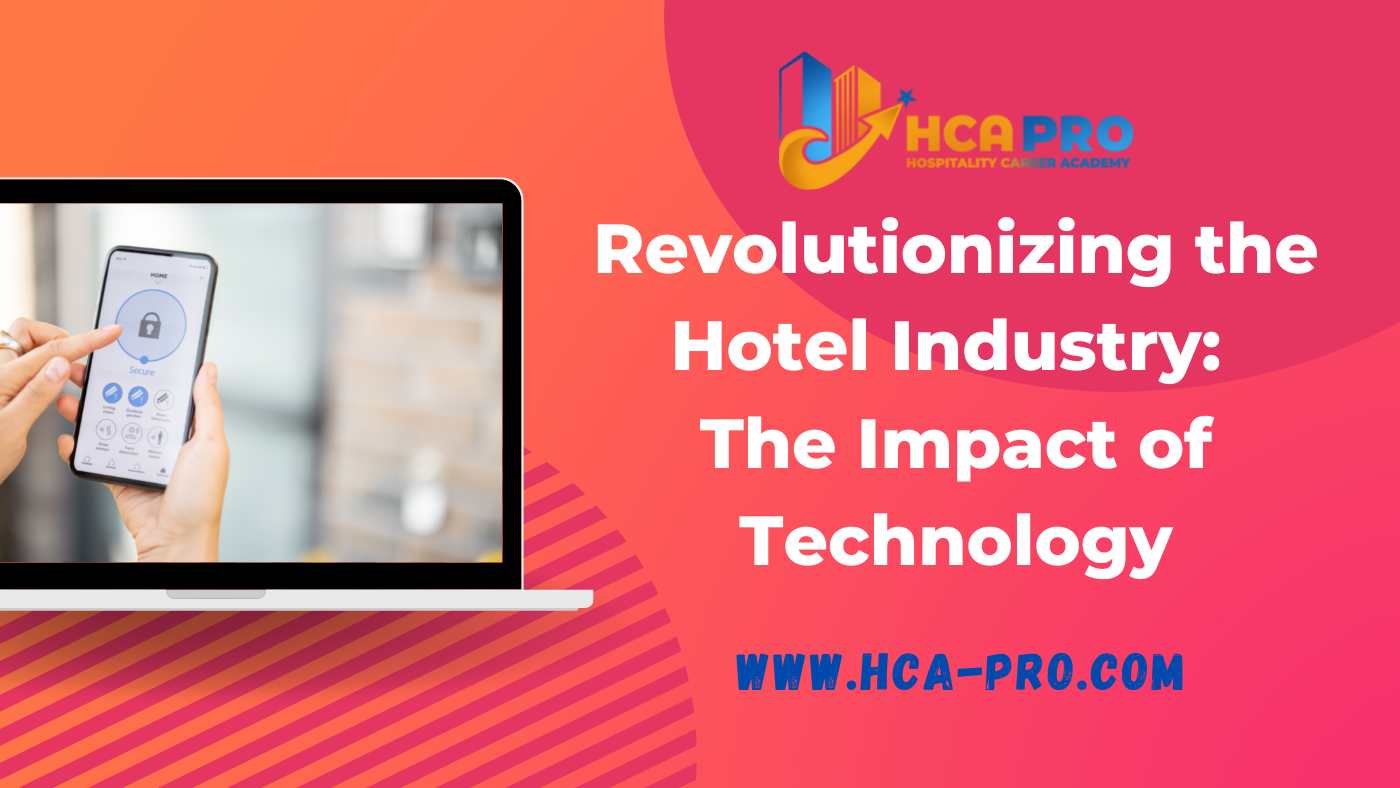
The Use of Technology in the Hotel Industry
The hotel industry has always been known for its luxurious amenities and top-notch customer service, but in recent years, technology has played a significant role in elevating the guest experience. From online booking systems to smart room technology, the use of technology in hotels has revolutionized the way guests interact with their surroundings and how hotels operate.
Technology in Hotel Rooms
Technology in hotel rooms is one of the key areas where technology is revolutionizing the guest experience. With the integration of smart room technology, in-room entertainment systems, and mobile check-in and keyless entry, hotels are now able to offer guests a more convenient and personalized stay. Smart room technology, such as voice-controlled assistants and smart lighting, allows guests to control room temperature, lighting, and other amenities with voice commands, improving the overall guest experience. In-room entertainment systems, including streaming services and interactive TVs, provide guests with access to a wide variety of content and personalized viewing options. Mobile check-in and keyless entry systems improve the check-in process and enhance guest convenience, while also improving security and reducing the need for physical keys. These advancements in technology in hotel rooms are changing the way guests interact with their surroundings and how hotels operate.
Voice-controlled Assistants in Hotel Rooms
Voice-controlled assistants in hotel rooms, such as Amazon Alexa and Google Home, enhance guest experience by allowing them to control room temperature, lighting, and other amenities with voice commands. These assistants also provide guests with a more convenient and personalized stay, providing information and helping guests with their needs. Examples of popular voice-controlled assistants used in hotels include Amazon Alexa and Google Home, they integrate with various smart devices in the room, making the guest experience more seamless and intuitive.
Smart Lighting in Hotel Rooms
Smart lighting in hotel rooms offers various benefits such as energy savings and improved ambiance. With smart lighting, guests can adjust the brightness and color of their room's lights to create the perfect atmosphere, whether they're reading, sleeping, or entertaining. The ability to control lighting with a mobile device or voice commands also makes it more convenient for guests to adjust the lighting in their room. Additionally, smart lighting can also be integrated with occupancy sensors, which can automatically turn lights off when the room is empty, helping hotels save energy.
Integrating smart lighting with voice-controlled assistants such as Amazon Alexa and Google Home, can provide added convenience for guests. For example, guests can use voice commands to turn lights on and off, adjust brightness and color, and even set lighting scenes, without ever having to leave their bed or chair. This added convenience can further enhance the guest experience and improve overall satisfaction.
In-room Entertainment Systems
In-room entertainment systems, such as streaming services and interactive TVs, provide guests with access to a wide variety of content and personalized viewing options. These systems can include streaming services like Netflix and Hulu, as well as traditional cable or satellite TV, giving guests access to a vast library of movies, TV shows, and other programming. Interactive TVs also allow guests to connect their own devices to the TV, such as laptops and smartphones, and stream content from their own personal accounts.
These in-room entertainment systems play a crucial role in enhancing the guest experience by providing them with a wide variety of content options to choose from. This can help guests feel more at home and comfortable, and also keep them entertained during their stay. Furthermore, interactive TVs allow guests to access their own personal accounts and stream their own content which makes them feel like they are at home.
In-room entertainment systems also provide hotels with an opportunity to create a more personalized experience for guests, by offering them a wide variety of programming options and the ability to connect their own devices. This can lead to increased guest satisfaction and repeat business.
Mobile Check-in and Room Keyless Entry
Mobile check-in and keyless entry systems are becoming increasingly popular in the hotel industry as they improve the check-in process and enhance guest convenience. With mobile check-in, guests can check in to their room using their mobile device, eliminating the need to wait in line at the front desk. This allows for a more efficient check-in process and allows guests to go straight to their room upon arrival.
Keyless entry systems, such as using a mobile device as a room key, also provide guests with added convenience. Guests can use their mobile device to unlock their room door, eliminating the need for physical keys. This can be especially useful for guests who may lose or forget their physical keys, and also eliminates the need for hotel staff to replace lost keys.
These technologies not only improve the guest experience, but also improve security by eliminating the need for physical keys that can be lost or stolen. Additionally, keyless entry systems can also provide hotels with more detailed access logs, allowing them to track who enters and exits each room and at what time, providing an added level of security.
Benefits of Technology in the Hotel Industry,
The use of technology in the hotel industry has brought about numerous benefits that are helping hotels to run more efficiently, improve guest experience and satisfaction, and save costs.
-
Increased efficiency and cost savings for hotels: Technology allows for automation and streamlining of various processes such as online booking, check-in, and room management, leading to increased efficiency and cost savings for hotels.
-
Improved guest experience and satisfaction: Technology in hotel rooms such as smart room technology, in-room entertainment systems and mobile check-in and keyless entry, improves the overall guest experience, making it more convenient and personalized, leading to increased guest satisfaction.
-
Data analysis and personalized marketing: Technology enables hotels to gather and analyze data on guest preferences, behavior and booking patterns, this information can be used to personalize marketing efforts and improve services, leading to increased guest satisfaction and repeat business.
Disruptive Technology in the Hotel Industry
Disruptive technology in the hotel industry refers to new and innovative technologies that have the potential to significantly change the way the industry operates. These technologies include:
-
Virtual and augmented reality in guest rooms and hotels: This technology can provide guests with immersive experiences in their rooms and common areas, such as virtual tours of the city, or even virtual reality gaming, creating unique and memorable experiences for guests.
-
Artificial intelligence and chatbots for customer service: This technology can be used to provide personalized recommendations, improve customer service, and automate tasks. Chatbots can provide guests with 24/7 assistance, answering their questions, and resolving issues.
-
Blockchain technology for secure online payments and reservations: This technology can provide secure and transparent online payments and reservations, reducing the risk of fraud and ensuring the security of personal and financial information of guests.
New Technology in the Hospitality Industry
New technology in the hospitality industry refers to the latest advancements and innovations that are being implemented in hotels and other related businesses in order to improve the guest experience and streamline operations. Some examples of new technology in the hospitality industry include:
-
Contactless check-in and room service: This technology allows guests to check-in and order room service using their mobile devices, reducing the need for physical contact and increasing convenience.
-
Automated cleaning and disinfection systems: This technology can help hotels keep their properties clean and safe by using robots and other automated systems to clean and disinfect guest rooms and common areas.
-
Smart energy management systems: This technology can help hotels reduce energy consumption and costs by automatically adjusting lighting, temperature, and other systems based on occupancy and usage.
-
Internet of Things (IoT) integration: This technology allows hotels to connect various devices and systems within the hotel, such as lighting, room temperature, and other amenities to improve guests' experience, and increase the efficiency of the hotel.
Summary
Technology has revolutionized the hotel industry, from online booking systems to smart room technology. The use of technology in hotels has improved the guest experience by making it more convenient and personalized. Technology has also enabled hotels to gather and analyze data to better understand guest preferences and behavior, allowing them to tailor their services and marketing efforts. The integration of technology in hotel rooms such as smart room technology, in-room entertainment systems, and mobile check-in and keyless entry have improved the overall guest experience. Disruptive technologies such as virtual and augmented reality, artificial intelligence and blockchain technology have the potential to change the way the industry operates, providing hotels with new ways to improve guest experience, increase efficiency, and reduce costs. New technology in the hospitality industry such as contactless check-in, automated cleaning, smart energy management and IoT integration also help hotels to improve the guest experience and streamline operations.
Read More: E-Commerce In The Hotel Industry: Impact, Advantages, And Future Trends
